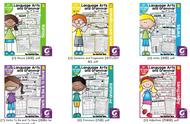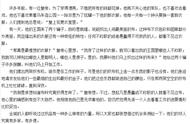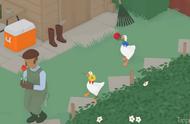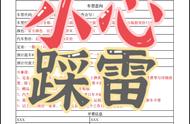* 用英语自身来理解和学习英语是最好的方式,《英读廊》是《满庭说英语》中的拓展阅读系列,这一系列的文章力求帮助大家在英语阅读能力上有所提升,并树立英语思维;
* 推荐的阅读的方法是:先原文,适当看解析阅读,还有疑惑再看双语对照。
* 解析中英语单词的音标使用Dictcom和IPA双音标标注,如果需要了解Dictcom音标,请参看我们的《dictionary.com所用的音标体系》一文。
* 本篇文章难度系数4.8,由《小仙英语伴读》人工智能难度分析系统提供评分。
Running a Mile
【译】跑一英里
【单词】mile [mahyl][maɪl] n. 英里;海里;一英里赛跑

My last class of the day was my physical education class.
【译】我今天最后一节课是体育课。
【单词】physical 形容词 ['fiz-i-kuhl]['fɪzɪkl] adj. 物质的;身体的;体力的;物理的;肉体上的,身体上的 <美>体格检查
I always hated it.
【译】我一直讨厌它(体育课)。
【单词】hated 原型:hate 动词过去式 [heyt][heɪt] v. 憎恨;厌恶;讨厌 n. 憎恨;厌恶
For the past three years, people had found ways to embarrass me.
【译】在过去的三年里,人们总是想方设法让我难堪。
【单词】embarrass 动词原形 [em-'bar-uhs][ɪm'bærəs] vt. 使窘迫;使尴尬;使为难 vi. 窘迫
Things weren't so bad at first.
【译】一开始情况还不算太糟。
【短语】at first 首先、最初
A basketball hit me in the head when I was talking to a girl.
【译】当我和一个女孩说话时,一个篮球击中了我的头。
【单词】basketball 名词 ['bas-kit-bawl, 'bah-skit-]['bɑːskɪtbɔːl] n. 篮球
【单词】hit 动词过去式 [hit][hɪt] vi. 打(击);袭击;达到 vt. 要求;打(击);碰撞;偶然发现;符合 n. 讽刺;打(击);冲撞;成功
I was trying to climb the big rope in the gym and fell down in front of everyone, who started laughing.
【译】我试图爬上体育馆的大绳,却在大家面前摔倒了,大家都笑了起来。
【单词】climb 动词原形 [klahym][klaɪm] v. 攀登;爬;上升 n. 爬;攀爬处
【单词】rope 名词 [rohp][rəʊp] n. 绳索;一串
【单词】gym 名词 [jim][dʒɪm] n. 体育馆;健身房;体育课
【单词】laughing['laf-ing, 'lah-fing]['lɑːfɪŋ] n. 笑;笑声 adj. 可笑的;带笑的 动词laugh的现在分词形式.
However, the worst thing was yet to happen.
【译】然而,最糟糕的事情还没有发生。
【单词】happen 动词原形 ['hap-uhn]['hæpən] vi. 发生;碰巧;出现;偶遇
At the end of a year, we always have a test to see how we have improved.
【译】一年下来,我们总会有一个测试,看看我们有什么进步。
【单词】improved 原型:improve 动词过去分词 [im-'proov][ɪm'pruːv] vt. 改善;改进;提高 vi. 变得更好;改进

We have to run a mile.
【译】我们得跑一英里。
The whole class does this at the same time.
【译】全班同学同时做这个。
I wasn't the fastest runner, but I knew I could get a good score for this test.
【译】我不是跑得最快的,但我知道这次考试我可以考个好成绩。
【单词】fastest 原型:fast 形容词最高级,最快的。 fast [fast, fahst][fɑːst] adj. 快的;迅速的;紧的;牢固的;放荡的 adv. 快速地;紧紧地
【单词】runner 名词 ['ruhn-er]['rʌnə] n. 赛跑的人;跑步者
【单词】score 名词 [skawr, skohr][skɔː] vt. 得分;获胜;刻划;划线;批评;给 ... 谱曲 n. 得分;vi. 得分;记分;得胜
For this activity, we have to go into the locker room and change into our uniform.
【译】为了这次活动,我们必须进入更衣室换上制服。
【用法】have to do sth. 表示“必须”、“不得不”、“只好”、“(被迫)很勉强”去做某事,后面跟动词原形,与情态动词 must 近义但区别在于:have to 表示客观的需要,must 表示说话人主观上的看法,既主观上的必要。例句:My brother was very ill, so I had to call the doctor in the middle of the night. 我弟弟病得很厉害,我只得半夜里把医生请来。(客观上需要做这件事) He said that they must work hard. 他说他们必须努力工作。(主观上要做这件事)
【单词】locker 名词 ['lok-er]['lɒkə] n. 更衣箱;储物柜;冷藏室;上锁的人
【单词】uniform 名词 ['yoo-nuh-fawrm]['juːnɪfɔːm] n. 制服 adj. 一致的;统一的
I left my uniform in my locker the other day since it was clean.
【译】前几天我把制服忘在储物柜里了,因为它是干净的。
When I opened my locker, I saw a note saying, "Buy new uniform, loser."
【译】当我打开储物柜时,我看到一张纸条,上面写着:“买新制服吧,失败者。”
【单词】loser 形容词 ['loo-zer]['luːzə] n. 失败者;输家;遗失者
Someone had broken into my locker and took my clothes.
【译】有人闯入我的储物柜拿走了我的衣服。
【单词】broken 原型:break 动词过去分词 [breyk][breɪk] v. 打碎;折断;违背;解决;中断;透露;变弱;锐减;结束
【单词】clothes 名词复数形式 [klohz, klohthz][kləʊðz] n. 服装;衣服
I told the teacher, who went into his office and gave me an old uniform that had been left behind.
【译】我告诉了老师,他走进他的办公室,给了我一件扔在后边的旧制服。
【单词】teacher 名词 ['tee-cher]['tiːtʃə] n. 教师
"Suit up and I'll see you out there," he said.
【译】“穿上它(制服),我在外面见,”他说。
【单词】suit 原型:suit 名词 [soot][suːt] n. 套装
I tried tying a rope around the shorts to make them fit, but they wouldn't.
【译】我试着在短裤上系一根绳子使它们合身,但它们不合身。
【语法】make+宾语+adj. 意为“使某人/某事(变得)……”。如:We must make the rivers clean.
【单词】tying 原型:tie 动词现在进行式或动名词 [tahy][taɪ] n. 束缚;使人结合在一起的事物;领带;绳;不分胜负 v. 系;约束;捆绑;打结;连结
【单词】fit 形容词 [fit][fɪt] adj. 适宜的;合适的;健康的 v. 适合;安装 n. 发作;适宜
The bell rang, and I knew my teacher would be mad if I didn't get out there.
【译】铃响了,我知道如果我不出去,老师会生气的。
【单词】bell 名词 [bel][bel] n. 钟;铃;门铃;钟声;钟状物 vt. 敲钟;使象钟状地张开 vi. 使呈钟状;张开
【单词】rang 原型:ring 动词过去式 [ring][rɪŋ] n. 戒指;环;圈;拳击场;马戏场;帮派 n. 铃声;钟声;电话;口气 v. 包围;环绕;形成圈 v. 打电话;回响;鸣响;按铃;听上去
【单词】mad 形容词 [mad][mæd] adj. 发疯的,发狂似的;狂热的;鲁莽的;着迷的;生气的;极度激动的
I started running, and barely got there before he started calling names.
【译】我开始急跑,将将赶到那儿的时候他正好开始点名了。
【单词】barely 副词 ['bair-lee]['beəli] adv. 几乎不;刚刚;勉强;少量地
After he finished with the roll call, we started the test.
【译】他点名完毕后,我们开始了测试。
【单词】finished 原型:finish 动词过去式 ['fin-ish]['fɪnɪʃ] v. 完成;结束;最后加工;用完 n. 结束;完成
【单词】roll 名词 [rohl][rəʊl] n. 卷;滚动;名单 v. 摇摆;滚;绕;转动;展开
The whole class set off running.
【译】全班同学都开始跑步了。
I was doing okay at the beginning.
【译】一开始我还不错。
【单词】okay 形容词 ['oh-'key, oh-'key, 'oh-key][ˌəʊ'keɪ] adv. <表示同意或允许>好的; 可以; 行 adj. 好的 n. 同意 vt. 同意
【单词】beginning 原型:begin 动词现在进行式或动名词 [bih-'gin][bɪ'ɡɪn] v. 开始;着手
After a while, people started passing me.
【译】过了一会儿,人们开始从我身边超过。
【单词】passing 原型:pass 动词现在进行式或动名词 [pas, pahs][pɑːs] v. 通过;经过;度过;传递;发生
A lot of people laughed at my shorts.
【译】很多人嘲笑我的短裤。
【短语】a lot of ... 许多;例句:We have grown a lot of beautiful roses this year. 今年我们栽种了许多漂亮的玫瑰。
【短语】laugh at ... 嘲笑……,因……而发笑;例句:Don't laugh at him; he's very sensitive. 千万别嘲笑他,他很敏感。
Then it happened.
【译】然后事情发生了。
【单词】happened 原型:happen 动词过去式 ['hap-uhn]['hæpən] vi. 发生;碰巧;出现;偶遇
One guy pushed me out of his way, and I ended up falling.
【译】有个人把我推到一边,结果我摔倒了。
【单词】guy 名词 [gahy][ɡaɪ] n. 家伙;(男)人 n. 拉索;牵索 vt. 嘲笑
【单词】pushed 原型:push 动词过去式 [poosh][pʊʃ] v. 推;按;挤;逼迫;催促 n. 推;奋力;决心
My shorts fell first, and then I fell to the ground.
【译】我的短裤先掉了下来,然后又掉到地上。
【单词】ground 名词 [ground][ɡraʊnd] n. 地面;地方;根据;主题;立场;水平;背景
That was when all the girls started passing me.
【译】恰好那时所有的女孩都干好开始超过我身边。
One of them shouted, "Ew, he doesn't have clean underwear."
【译】其中一个喊道:“呃,他没有干净的内衣。”
【单词】shouted 原型:shout 动词过去式 [shout][ʃaʊt] v. 呼喊;高声呼叫 n. 呼喊;大声叫
【单词】Ew 原型:ew 名词 语气词
【单词】underwear 名词 ['uhn-der-wair]['ʌndəweə] n. 内衣
I picked up my shorts, and walked the rest of the mile.
【译】我拿起短裤,走完了剩下的一英里。
【单词】picked 原型:pick 动词过去式 [pik][pɪk] v. 拾;捡;挑选;采摘;找茬;偶然学到 n. 拾;捡;选择;采摘;精华
【单词】walked 原型:walk 动词过去式 [wawk][wɔːk] v. 步行;陪...走;散步;偷走;走过 n. 步行;散步;人行道

It was the most embarrassing moment in my life.
【译】那是我一生中最尴尬的时刻。
【单词】embarrassing 原型:embarrass 现在分词做形容词 [em-'bar-uhs][ɪm'bærəs] vt. 使窘迫;使尴尬;使为难 vi. 窘迫














